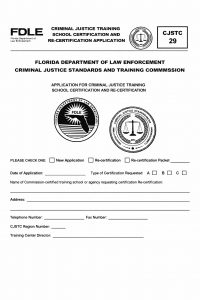As a notary public in Florida, you serve as an impartial witness to important document signings. But what happens when a family member asks you to notarize their documents? Can you legally do so, or would this create a conflict of interest? This comprehensive guide explores the rules, limitations, and best practices for notaries when it comes to notarizing for family members.
Florida’s Specific Rules on Family Notarizations
Florida law is quite clear regarding notarizing documents for family members. Section 117.107(11) of the Florida Statutes explicitly prohibits a notary public from notarizing a signature if the person is the notary’s spouse, son, daughter, mother, or father. This restriction exists to ensure that notaries maintain their role as impartial witnesses to document signings.
The law specifically identifies these five immediate family relationships as prohibited, but doesn’t explicitly mention other family relationships such as siblings, grandparents, aunts, uncles, or cousins. However, just because the law doesn’t explicitly prohibit notarizing for these extended family members doesn’t mean it’s always advisable to do so.
The Importance of Impartiality in Notarization
The foundation of the notarial process rests on trust and impartiality. As a notary public, your primary role is to:
- Act as an unbiased witness to important document signings
- Verify the signer’s identity
- Ensure the signer is acting willingly and without coercion
- Maintain the integrity of the notarization process
When you notarize a document, you’re essentially certifying that proper procedures were followed and that the signature is authentic. This certification carries legal weight and creates public trust in the document’s validity.
Financial Interest and Conflicts of Interest
Beyond the specific prohibition on notarizing for immediate family members, Florida law addresses potential conflicts of interest in Section 117.107(12) of the Florida Statutes. This provision states that a notary cannot perform a notarization when they have a financial interest in or are a party to the underlying transaction.
What constitutes a “financial interest”? While Florida statutes don’t explicitly define this term, examples include:
- Being a beneficiary named in a will or trust
- Having an ownership stake in property being transferred
- Receiving a sales commission from the transaction
- Being named in the document in any capacity that provides a benefit
Even if the family member in question falls outside the specifically prohibited relationships, you must consider whether you have any financial interest in the document or transaction before proceeding with the notarization.
Get Fingerprinting Services for Your Security Needs
Exceptions to the Rule
The notary statutes do provide certain exemptions to the conflict of interest rules:
- Employee Exception: Notaries who are employees may notarize signatures for their employers
- Attorney Exception: An attorney who has prepared a document as the attorney of record may notarize their client’s signature
These exemptions apply only if the notary does not receive any benefit beyond their salary and standard notarial fees. The notary still must not be a party to or have a direct interest in the transaction.

Best Practices for Notaries
Even when notarizing for extended family members is technically legal, following these best practices can help you maintain your professional integrity and avoid potential issues:
1. Avoid Notarizing for Any Family Members When Possible
The American Association of Notaries (AAN) recommends that notaries refrain from performing notarial acts for any family member, including in-laws and other relatives, even if not specifically prohibited by law. This approach helps maintain impartiality and protects both the notary and the document from potential challenges.
2. Consider Potential Conflicts Carefully
Before notarizing any document, particularly for family members, ask yourself:
- Do I have any direct or indirect financial interest in this document?
- Could I potentially benefit from this transaction in the future?
- Would my relationship with this person compromise my impartiality?
- Would this notarization create even the appearance of impropriety?
3. Refer Family Members to Other Notaries
If a family member asks you to notarize a document, the most professional approach is to:
- Politely explain the legal restrictions and ethical considerations
- Provide them with a list of reliable notaries in your area who can assist them
- Help them understand that this refusal protects both of you from potential legal issues
4. Maintain Detailed Records
If you do notarize for an extended family member (not prohibited by law), be sure to:
- Document the relationship in your notary journal
- Record detailed information about the identification provided
- Note any unusual circumstances surrounding the notarization
- Consider having an impartial witness present during the notarization
5. Conflict of Interest in Real Estate
The notary statutes also address financial interest conflicts. Section 117.107(12) prohibits a notary from performing notarizations when they have a financial interest in or are a party to the underlying transaction. For instance, if a notary purchases property, they cannot notarize the deed of sale or related real estate documents.
Consequences of Improper Notarization
Notarizing documents in violation of Florida’s restrictions can have serious consequences:
- Legal Consequences: The notarization could be deemed invalid, potentially invalidating the entire document or transaction
- Professional Consequences: Your notary commission could be suspended or revoked
- Financial Consequences: You could face fines or be held liable for damages resulting from an improper notarization
- Reputational Damage: Your professional reputation could be compromised
Remote Online Notarization Options
With the advent of remote online notarization (RON) in Florida, there are now alternatives for family members seeking notary services:
- Online Notary Platforms: Services that connect signers with available notaries through secure audio-video technology
- Mobile Notary Services: Professional notaries who travel to the signer’s location
- Traditional Notary Sources: Banks, shipping stores, and law offices that offer notary services
These alternatives provide convenient options for family members needing notarization services without placing you in a potentially compromising position.
Final Thoughts
As a notary public, understanding and adhering to the rules regarding notarizing for family members is essential to maintaining the integrity of your commission and the notarial process as a whole. While Florida law specifically prohibits notarizing for spouses, parents, and children, the wisest course is to avoid notarizing for any family member whenever possible.
By maintaining your impartiality, you uphold the public trust placed in you as a notary and ensure that the documents you notarize will stand up to legal scrutiny. When in doubt, it’s always better to err on the side of caution and refer family members to another notary for their notarial needs.
Disclaimer: This information is provided for general guidance only and should not be relied upon as legal advice. For specific legal questions regarding your duties as a notary public, consult with an attorney or contact the Florida Department of State.









